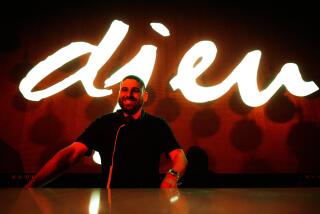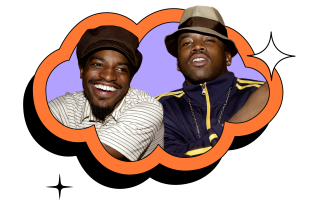Retail Success Eludes Electronic Scene
Will 2002 be the year when electronic dance music finally finds its groove in album sales, or will the genre continue to ignore industry conventions and treat retail as a mere detail?
Tonight, the electronic scene will usher in 2002 with vast parties around the globe, and none will be more star-studded than the ones in Southern California. Paul Oakenfold, Deep Dish and BT will be at the Center of the Universe party on Hollywood Boulevard, while Sasha, Paul Van Dyk and Derrick Carter will spin at the Giant Village event at Coliseum Gardens. Each event--and others in the area--will draw thousands of revelers devoted to the throbbing beats delivered by the deejays and musicians. That devotion and the burgeoning sceneâs hip quotient have inspired record companies to pounce on the music at various times in the past decade, but unlike rock, rap or other pop revolutions, electronic dance has rarely created sensations in record stores.
Fatboy Slim, Moby and the Chemical Brothers have sold enough albums to become familiar names to pop fans, but most of the genreâs stars remain stage sensations only. On the SoundScan list of the top-selling 200 album of 2001, you will find country, gospel, reggae, blues, new age, jazz, soundtracks and even Christmas collections--but not a single disc by an electronic music act. The closest the genre came was the soundtrack to âThe Fast & the Furious,â which collected electronic music with rock and finished at No. 113.
Does it matter, though? Pasquale Rotella, a leading rave promoter in Southern California, says no. âItâs a hard sell when it comes to marketing the music,â he says. âThereâs no face with the music, which is how people often distinguish one CD from the next. People who like the music get a lot of from downloading. The bestselling [albums] are compilations and a lot of them have the same tracks. There are so many different genres and new fans donât know them all. All of it makes it hard for one album to become a blockbuster.â
Through the years, Pasquale has watched record companies new to the scene throw money at some electronic acts and ignore other stars. âThey donât get it, really. Thereâs not a traditional approach with this music. For a lot of the fans, itâs about the event, not the artist, and thatâs unique.â
More to Read
The biggest entertainment stories
Get our big stories about Hollywood, film, television, music, arts, culture and more right in your inbox as soon as they publish.
You may occasionally receive promotional content from the Los Angeles Times.










